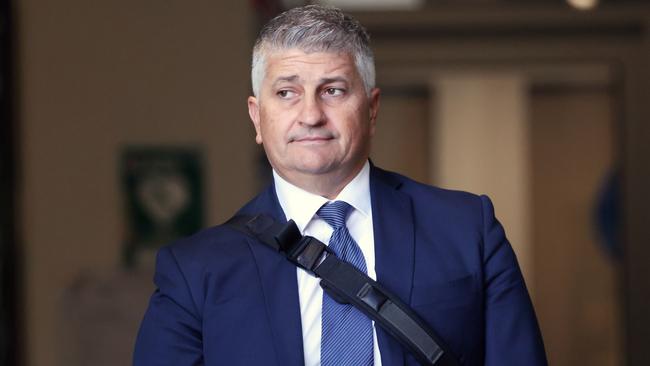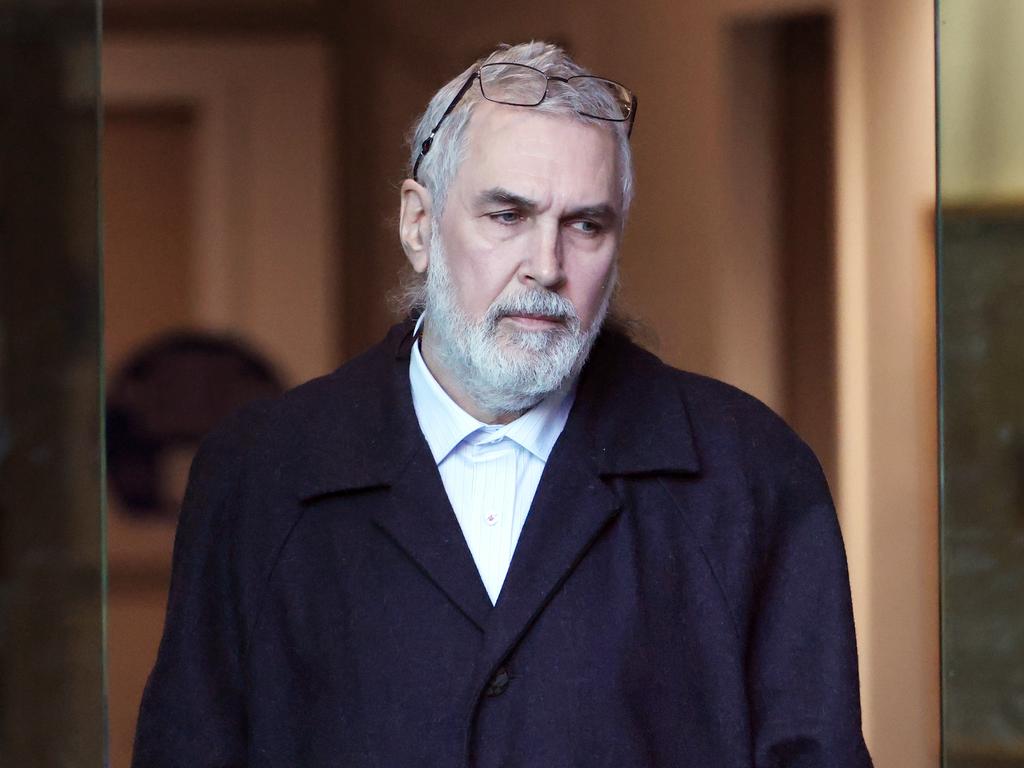Erin Patterson trial: Death cap mushrooms found in dehydrator
Toxins from the poisonous mushrooms were found in debris extracted from Erin Patterson’s dehydrator.

Death cap mushroom toxins were detected in Erin Patterson’s dehydrator, according to a plant health research scientist who analysed the leftovers of her poisonous beef Wellington.
Plant Health Australia diagnostics manager David Lovelock told the Victorian Supreme Court on Friday that he and his team were sent two large samples of the meal that killed three elderly relatives of Ms Patterson’s estranged husband, Simon.
While he did not detect amanita phalloides in the meat or pastry of the meal, toxins from the deadly mushrooms were found in microscopic debris extracted from Ms Patterson’s Sunbeam dehydrator.
Ms Patterson is on trial for the murder of three of Simon Patterson’s relatives – and the attempted murder of a fourth – having served them the deadly meal at a lunch in her Leongatha home in Victoria on July 29, 2023. She has pleaded not guilty to all charges.
The court has previously heard police recovered leftovers from the meal from a bin at Ms Patterson’s home on July 31, 2023 and dropping them to the Leongatha Hospital.
The food was then transported with Ms Patterson in an ambulance to the Monash Medical Centre, before being inspected by a mycologist at the Royal Botanic Gardens of Victoria.
Dr Lovelock told the court on Friday the meal arrived in two zip-lock bags on August 2, 2023.
The jury on Friday was shown photographs of the beef Wellington, which showed one of the beef Wellingtons looking like a squashed sausage roll and the other like a pasty that had been partly eaten.
Dr Lovelock said upon testing the samples of the beef Wellington, “the only thing we found was the white button mushroom and bovine-related material”.
On August 11, 2023, he received a series of tubes from police which contained a “very small quantity” of debris collected from Ms Patterson’s dehydrator that she had dumped in the local tip in the days after the lunch.
“We were able to detect amanita phalloides in two of the seven test tubes,” he said.
The Supreme Court, currently sitting in Morwell, on Friday also heard further evidence from Victorian Institute of Forensic Medicine head of forensic science Dimitri Gerostamoulos, who had also analysed the leftover meal.
On Thursday, Professor Gerostamoulos had said he had detected death cap mushroom toxins in the beef Wellington sample, which was provided two him three weeks after Dr Lovelock had inspected it.

Professor Gerostamoulos on Friday was asked about a 2017 German publication that had used a severity grading of death cap mushroom poisoning.
Colin Mandy SC for the defence asked about the four stages of severity for the poisoning, which started at grade one with symptoms including gastroenteritis but with no liver dysfunction.
By stage three, victims faced severe liver injury and by stage four a liver transplant was required. The court has previously heard that Ms Patterson’s symptoms after the meal were mild compared with those of the four elderly victims, three of whom died.
Professor Gerostamoulos was asked whether factors such as the amount of the toxins consumed, the general health of the victim, their age and weight could contribute to the response. He agreed that those factors could influence the health response.
Professor Gerostamoulos was later asked by the crown in re-examination about a scenario in which two people ate the same meal containing death cap mushrooms and one of them died. He said, “it would be likely there would be some adverse outcomes of the person who survived” but said the results “might vary”.
The court has previously heard that the four guests had suffered severe reactions after eating the beef Wellington on July 29, 2023.
The court has heard that Ms Patterson, 50, of Leongatha, had arrived at hospital nearly two days after the meal with some mild symptoms of diarrhoea and an increased heart rate.
Ms Patterson is charged with murdering Donald Patterson, his wife Gail, both 70, and Heather Wilkinson, 66.
The court has heard previously that the four guests at the lunch – which also included Heather Wilkinson’s husband, Ian – had been invited to discuss medical news with Ms Patterson relating to alleged cancer.
The court has also heard that Ms Patterson does not have cancer and the prosecution has alleged that the dead were lured to the lunch on false pretences.




